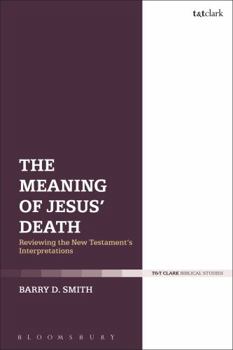The Meaning of Jesus' Death
Barry D. Smith studies the salvation-historical meaning of Jesus' death (commonly known as the atonement) in the New Testament. Smith works his way through the four theories of the doctrine of the atonement that have emerged in the history of Christian theology: moral influence, governmental, satisfaction and Christus victor theories.
Smith works from the premise that, for a theory of the atonement to be successful, no biblical data may be omitted or distorted, and the generalized concepts used to comprehend the biblical data must be easily seen as implicit in the data. From this vantage point, Smith advances a formulation of the atonement that is best supported by the biblical text itself. The conclusion Smith reaches is that the biblical data supports both the penal-substitutionary version of the satisfaction theory and the Christus victor theory of the atonement, each of which should be viewed as two parts of a more inclusive theory of atonement present in the New Testament.Format:Hardcover
Language:English
ISBN:0567670694
ISBN13:9780567670694
Release Date:December 2016
Publisher:T&T Clark
Length:256 Pages
Weight:1.00 lbs.
Dimensions:0.9" x 6.3" x 9.3"
Customer Reviews
0 rating





